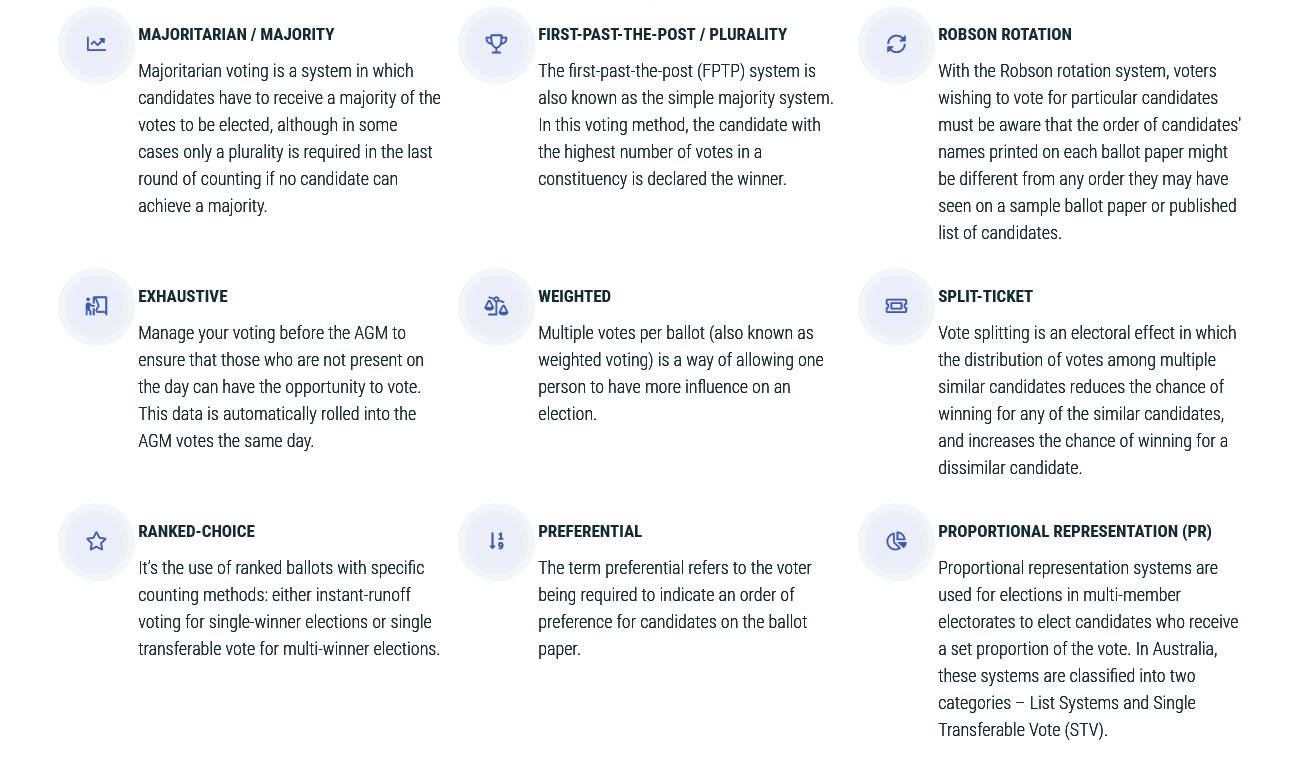4 Steps on How to Conduct Board Elections Seamlessly
May 18, 2021

At the board election, voting members elect new or returning board members for their organisation. This election is very important because the board has a great impact on the governance of every organisation.
A good election promotes democratic decision making and a respected outcome. An election process that is based on principles will certainly have a fair turnout and encourage participation.
Here are the key steps for achieving a successful board of elections:
Step 1. Preparing Notice of the Election
The organisational requirements shall be prepared by the returning officer or the selected election service provider. The election notice must be communicated to all members.
The notice should include the following information:
- State the election schedule with contact details of the returning officer
- Set forth the requirements or qualifications required by the constitution for each position
- Set the time and date for closing the list of eligible members
- Call for nominations and list the positions to be run
- Provide instructions as to where and when to lodge nominations
- Set a date for the closing of nominations and voting. If voting is to be conducted at the AGM, communicate the timing and access to the online event
With Vero Voting, we act as your returning officer, helping you set up the entire election process online. Our customisable online voting system helps you run elections seamlessly and easily.
Step 2. Nomination Process
To begin with, the nomination process should be planned prior to voting. Typically, the nomination period runs in 15 days or two weeks. During this period, members may nominate a current member or nominate themselves.
The nominations list to be counted is only valid within the nomination period. There will also be a number of “eligibility rules” that must be followed in order to be accepted. This all needs to be clearly outlined.
Submitting nominations manually can be time-consuming and tedious process as it involves the following procedures:
Vero Voting’s online nomination process streamlines the entire process.
Here’s how easy it is to lodge nominations online:
- Use an internet browser, enter web address (i.e, www.companyname.verovoting.com.au)
- Enter the username and PIN provided by VeroVoting via email
- Submit nominations by following the instructions on the website link provided
- The nominee will be automatically notified and can either accept or reject the nomination request
Step 3. Voting method and election requirements
Traditionally, board elections are conducted by a show of hands or a verbal yes or no vote. In some situations involving confidential matters, Board Chairs may schedule a secret ballot.
With online voting solutions, boards can vote virtually and conveniently. The process is more efficient, the results are accurate, combined with strong security and transparency, making the voting process better than older traditional methods.
Along with deciding on the voting method, you also need to decide on the voting method to use. Below are some options:


Step 4. Declaration of Results
After the closing of the election, the returning officer is responsible for counting the votes. Prior to the count, the election official should be fully aware of the criteria for informality and ensure that the scrutineers observing the count on behalf of the candidates have a clear understanding.
A candidate cannot act as a scrutineer in any of the ballots being contested. That is why hiring an experienced election vendor is the best way to go. An election technology should have a secure voting system, be familiar with the organisation’s rules and bylaws, and be able to support multiple voting options.
Once the results of the election have been determined, the returning officer should notify the organisation’s board of directors in writing of the results, including:
a) the number of votes each candidate received;
b) the number of informal votes; and
c) the total number of votes cast
For retention of materials, all documents and records shall be delivered to the Board Officer and retained by the Election Provider for one month before being deleted.
Organisations can conduct a seamless online election. Vero Voting is present throughout the election process, providing members with an enjoyable election experience through our user-friendly and accessible election platform.
Ready to get started on your next board election? Request a demo and we’ll walk you through it.


